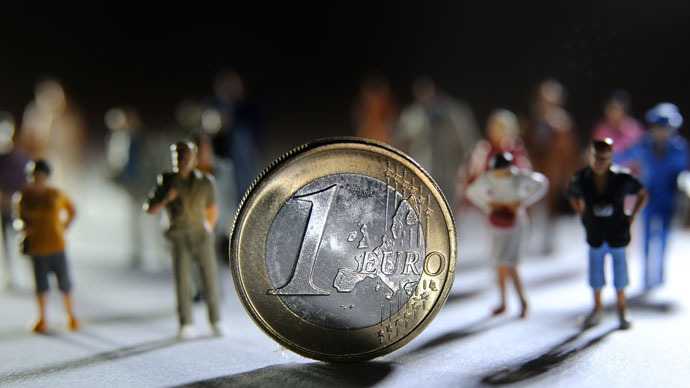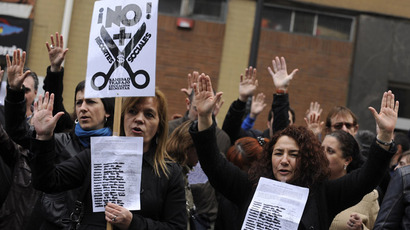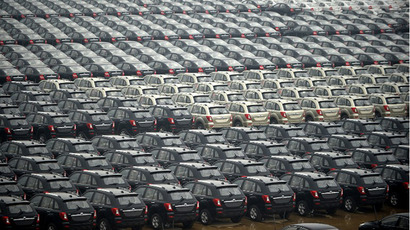In Euro they trust. But at what cost?

While Europeans keep saying the introduction of the Euro was a good decision, it remains a mystery how the eurozone countries didn’t notice the single currency deprived them of any say in key economic decisions,a National Australia Bank expert told RT.
“Many countries which gave up their own national currency in order to join the euro are finding that it left them powerless, they’ve got little or no influence over the monetary policy. They’ve got little or no influence over economic policy,” Nick Parsons, head of research for UK and Europe at National Australia Bank (NAB), said in an interview with Business RT.
The comment comes after a survey by the Pew Research Centre of 8 nations in the European Union said that the euro – the common currency for 17 out of the 27 European Union members – is welcomed by the majority of Europeans. More than 60% of people asked across Greece. Spain, Germany, Italy and France want to keep the euro as their currency.
“… many countries did not simply realize what they were getting into, when they gave up freedom to control their own currencies,” Parsons explained.
Despite the single currency remaining in public favor, the whole idea of the Brussels-based European Union is now being increasingly questioned. Five European nations out of the eight surveyed have become disappointed with the 27 nation union, with the favorability of the EU having fallen to 45% in 2013 from about 60% in 2012.
“The prolonged economic crisis has created centrifugal forces that are pulling European public opinion apart, separating the French from the Germans and the Germans from everyone else,” the report by Pew Research said.
Germany was the only country, where at least 50% of the public thought Brussels should be given more power to deal with the ongoing economic crisis. For the country that’s the biggest creditor nation in the eurozone “that’s not particularly surprising,” Parsons said.
“When we look at Germans saying that they’d prefer or at least agree with Brussels being given more powers, this is more about centralization of power with ultimately Germany in control of this. They are not talking about giving powers back to national Parliaments….They are talking about centralization of power with creditors in charge,” the NAB analyst concluded.














